The UAE Cabinet of Ministers has recently released Cabinet Decision No. 55 of 2023, effective from June 1, 2023, to establish criteria to define Qualifying Income of Qualifying Free Zone Persons under the Federal Decree-Law No. 47 of 2022 (herein ‘’CT Law’’). Additionally, the Ministry of Finance has issued Ministerial Decision No. 139 of 2023, effective from the same date, providing definitions for “Qualifying Activities” and “Excluded Activities” to supplement the Cabinet Decision.
Qualifying Free Zone Person (QFZP) under the CT Law
According to Article 18 of the CT Law, a Qualifying Free Zone Person must meet the following requirements:
- Maintaining Adequate Substance in the UAE.
- Generate Qualifying Income.
- Has not made an election to be subject to 9% CT.
- Comply with Transfer Pricing regulations.
- Maintain audited financial statements as per IFRS/IFRS for SMEs.
Failure to meet any of the above conditions during a Tax Period will result in the loss of QFZP status for the current period and the subsequent four Tax Periods. Consequently, the Free Zone person will be treated as a Taxable Person subject to a corporate income tax rate of 9% for a minimum term of five years.
Maintaining Adequate Substance by a Free Zone Person:
The Cabinet Decision defines that a QFZP must conduct its core income-generating activities within a Free Zone, possess sufficient assets, employ a suitable number of qualified personnel, and incur reasonable operating expenditures relative to its level of activities. It is permissible for a QFZP to outsource activities to a Related Party or a Third Party within the Free Zone, as long as adequate supervision is maintained over the outsourced activity.
Qualifying Income of a QFZP
The categorization of “Qualifying Income” includes the following:
- Income derived from other Free Zone Persons (excluding Excluded Activities) if the other Free Zone Person is the Beneficial Recipient of the relevant services or goods.
- Income derived from Qualifying Activities with Non-Free Zone Persons (excluding Excluded Activities), including any incidental income.
- Any other income provided that the QFZP satisfies the de minimis requirements.
- Non-qualifying Revenue =< 5% total Revenue or AED 5,000,000 (five million dirhams), whichever is lower
- Non-qualifying Revenue is the revenue derived from Excluded Activities and Activities that are not Qualifying Activities where the other party to the transaction is a Non-Free Zone Person
Income is classified as derived from transactions with a Free Zone Person when that person is the Beneficial Recipient of the services or goods involved.
The term “Beneficial Recipient” refers to a person who has the right to use and enjoy the service or goods without any contractual or legal obligation to pass them on to another person.
Non-qualifying Revenue:
is Revenue derived in a Tax Period from any of the following:
- Excluded Activities.
- Activities that are not Qualifying Activities where the other party to the transaction is a Non-Free Zone Person.
Total Revenue:
is all Revenue derived by a Qualifying Free Zone Person in a Tax Period.
The calculation of non-qualifying Revenue and total Revenue excludes the following types of Revenue:
- Revenue derived from transactions involving immovable property located in a Free Zone, which includes:
-
- Transactions with Non-Free Zone Persons related to Commercial Property.
- Transactions with any Person related to immovable property that is not Commercial Property.
- Revenue derived from a Domestic Permanent Establishment or a Foreign Permanent Establishment of the Qualifying Free Zone Person.
Qualifying Activities:
Qualifying Activities include:
- manufacturing and processing of goods or materials;
- holding of shares and other securities;
- ownership and operation of ships;
- reinsurance, fund/wealth, and investment management subject to regulatory oversight;
- headquarters, treasury, and financing services to related parties;
- Financing and leasing of aircraft;
- Distribution of goods in or from a designated zone, subject to certain conditions;
- the activity of distributing goods or materials must be undertaken in or from a Designated Zone and the goods or materials entering the State must be imported through the Designated Zone
- logistics services;
- any activities that are ancillary to the activities listed above.
Excluded Activities:
Activities excluded from the Qualifying Activities definition include
- Transactions with natural persons (with exceptions related to shipping, aircraft, fund, wealth, and investment management);
- Banking, finance, leasing, and insurance activities under regulatory oversight;
- Ownership or exploitation of immovable property (except for commercial property located in a Free Zone for transactions with other Free Zone Persons);
- Ownership or exploitation of intellectual property assets.
- Any activities that are ancillary to the activities listed above.
An activity shall be considered ancillary where it serves no independent function but is necessary for the performance of the main Qualifying/Excluded Activity
Corporate Group Key takeaway:
The recent Cabinet Decision and Ministerial Decision have provided updated guidelines on the taxation of Free Zone businesses in the UAE. It is essential for Free Zone Persons to ensure compliance with the Adequate Substance requirements, as well as the De Minimis Rule to maintain their status as Qualifying Free Zone Persons. Understanding the categorization of Qualifying and Excluded Incomes is crucial for accurate tax reporting. Additionally, the introduction of the concept of a Domestic PE will impact the taxation of Free Zone Persons engaged in business outside the Free Zone. It is advisable for businesses to seek professional guidance to navigate these regulatory changes effectively.
Author: Luca Angiolilli







